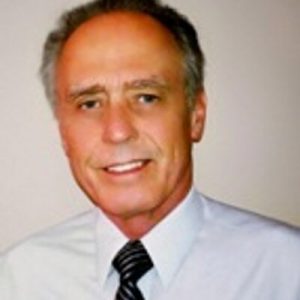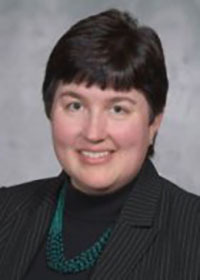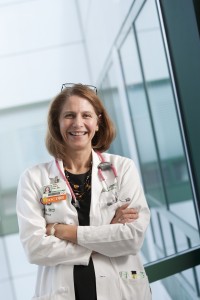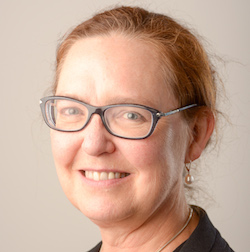IAMSE is pleased to announce that the association’s founder, Roger Koment, PhD, will be our guest of honor at the 2017 IAMSE Meeting in Burlington, Vermont.
 Roger Koment received his PhD in Medical Microbiology from the Pennsylvania State University College of Medicine, and his initial direction was to pursue a medical research path. Following completion of a fellowship at the University of Miami, he joined the faculty at the University of South Dakota School of Medicine where, as a professor and medical research scientist, he helped train more than 1,500 medical students, scores of graduate students, and uncounted numbers of baccalaureate students in the fundamental principles of infectious disease. Many more students, residents, and physicians were impacted through his teaching, including well over 1,000 international physicians he helped prepare for the USMLE.
Roger Koment received his PhD in Medical Microbiology from the Pennsylvania State University College of Medicine, and his initial direction was to pursue a medical research path. Following completion of a fellowship at the University of Miami, he joined the faculty at the University of South Dakota School of Medicine where, as a professor and medical research scientist, he helped train more than 1,500 medical students, scores of graduate students, and uncounted numbers of baccalaureate students in the fundamental principles of infectious disease. Many more students, residents, and physicians were impacted through his teaching, including well over 1,000 international physicians he helped prepare for the USMLE.
The concept of IAMSE began in 1988, when Dr. Koment organized the Special Interest Group on Basic Science Education within the AAMC Group on Educational Affairs (GEA). He wanted to insure that basic scientists were involved in the planning for training physicians for the 21st century of medical practice. In 1993, he and others decided to create an organization that would be independent, yet parallel, to this Special Interest Group, called the Basic Science Education Forum (BSEF. Between 1993 and 1997, the Basic Science Education Forum attracted individual members from over 400 medical institutions among 87 countries. Three meetings were convened (in 1993, 1995 and 1997). By mid-1996 it became evident that managing a global organization of such proportions with only the efforts of volunteers already holding full-time faculty appointments would no longer be feasible. On June 22, 1997, during the Third Biennial International Conference in Charleston, SC, Dr. Koment announced the dissolution of the Basic Science Education Forum and the formation of the International Association of Medical Science Educators (IAMSE) in its place. This action became effective on July 1, 1997.
IAMSE members owe a debt of gratitude to Dr. Roger Koment for his vision and his perseverance and tenacity to establish this vital and vibrant educational organization. We look forward to honoring him at the 2017 Annual Meeting, in Burlington, VT.
If you’re not yet registered for the 2017 IAMSE Meeting, please be sure to do so online at www.iamseconference.org! We look forward to seeing you there!
 Roger Koment received his PhD in Medical Microbiology from the Pennsylvania State University College of Medicine, and his initial direction was to pursue a medical research path. Following completion of a fellowship at the University of Miami, he joined the faculty at the University of South Dakota School of Medicine where, as a professor and medical research scientist, he helped train more than 1,500 medical students, scores of graduate students, and uncounted numbers of baccalaureate students in the fundamental principles of infectious disease. Many more students, residents, and physicians were impacted through his teaching, including well over 1,000 international physicians he helped prepare for the USMLE.
Roger Koment received his PhD in Medical Microbiology from the Pennsylvania State University College of Medicine, and his initial direction was to pursue a medical research path. Following completion of a fellowship at the University of Miami, he joined the faculty at the University of South Dakota School of Medicine where, as a professor and medical research scientist, he helped train more than 1,500 medical students, scores of graduate students, and uncounted numbers of baccalaureate students in the fundamental principles of infectious disease. Many more students, residents, and physicians were impacted through his teaching, including well over 1,000 international physicians he helped prepare for the USMLE. The 2015 Institute of Medicine report on “Improving Diagnosis in Healthcare” notes that diagnosis and diagnostic errors have been largely unappreciated in efforts to improve the quality and safety of healthcare. One of the primary roles of medical training programs is to help learners develop medical decision-making skills, and to do so with graduated levels of independence. Effective cognitive integration of the basic and clinical science concepts plays an essential role in enhancing diagnostic accuracy for novice clinicians. Furthermore, deliberate practice in transferring knowledge obtained in one clinical context to solve a new problem, or the same problem in another context, is critical to the development of clinical expertise.
The 2015 Institute of Medicine report on “Improving Diagnosis in Healthcare” notes that diagnosis and diagnostic errors have been largely unappreciated in efforts to improve the quality and safety of healthcare. One of the primary roles of medical training programs is to help learners develop medical decision-making skills, and to do so with graduated levels of independence. Effective cognitive integration of the basic and clinical science concepts plays an essential role in enhancing diagnostic accuracy for novice clinicians. Furthermore, deliberate practice in transferring knowledge obtained in one clinical context to solve a new problem, or the same problem in another context, is critical to the development of clinical expertise. solving. Meanwhile, the basic science knowledge of clinical instructors is often encapsulated, challenging their ability to help students integrate basic and clinical science concepts. A process for “unpacking” clinical instructors’ knowledge and reinforcing its connections to clinical decisions would facilitate student activation of their basic science knowledge, improving both diagnostic accuracy and long-term retention. In return, students who are able to use basic science concepts to defend clinical decisions may improve the “diagnostic accuracy” of their clinician preceptors’ entrustment decisions.
solving. Meanwhile, the basic science knowledge of clinical instructors is often encapsulated, challenging their ability to help students integrate basic and clinical science concepts. A process for “unpacking” clinical instructors’ knowledge and reinforcing its connections to clinical decisions would facilitate student activation of their basic science knowledge, improving both diagnostic accuracy and long-term retention. In return, students who are able to use basic science concepts to defend clinical decisions may improve the “diagnostic accuracy” of their clinician preceptors’ entrustment decisions. l reasoning, cognitive integration and encapsulation, participants will identify key clinical decision-making points relevant to common clinical scenarios. In collaborative teams of basic scientists and clinicians, workshop participants will discuss underlying basic science concepts which inform these decisions, potential decision-making pitfalls, and the role of basic science application in avoiding patient harm.
l reasoning, cognitive integration and encapsulation, participants will identify key clinical decision-making points relevant to common clinical scenarios. In collaborative teams of basic scientists and clinicians, workshop participants will discuss underlying basic science concepts which inform these decisions, potential decision-making pitfalls, and the role of basic science application in avoiding patient harm.